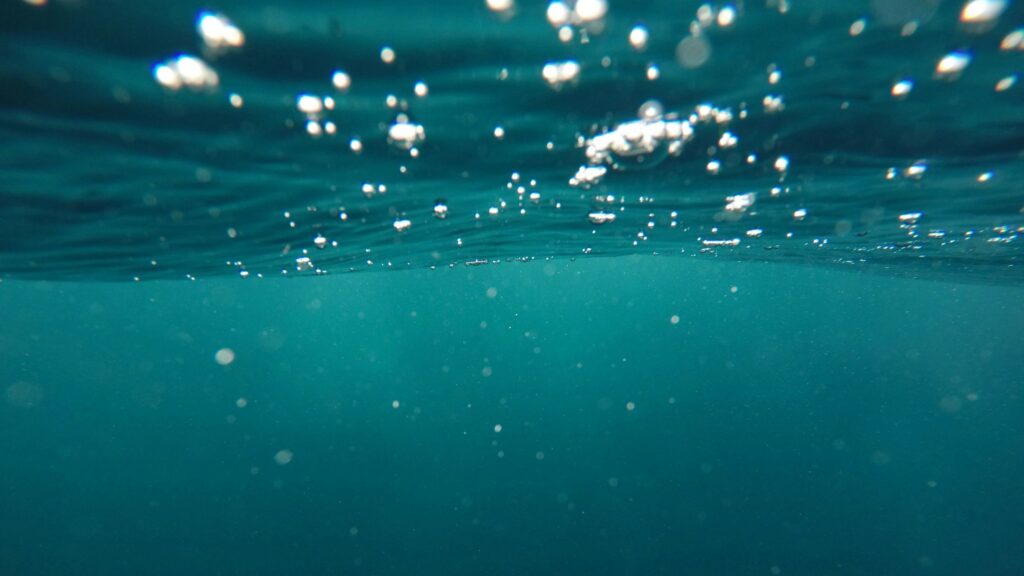Many organisations are working to preserve the ocean through different scientific ways, but primarily through awareness. One such organisation, named Greenpeace, uses a strategy that is unheard of among normal individuals. It is the dropping of massive limestone boulders into the Gulf of Lion. But why use such a technique, and what does it do to preserve the environment? So, let’s learn more about the science behind dropping boulders into the ocean for the preservation of marine life.
Dropping Boulders in Ocean to Save Marine Life
The enormous weight of boulders can function as a barrier to harmful fishing gear, which harms marine life. Moreover, it mainly functions to reduce the impact of the bottom trawling fishing method—it has a devastating effect on fragile habitats and carbon-rich sediments. Also, there is a considerable loss to corallineous reefs and fish like bluefin tuna.
Thus, to tackle such ill practices, there is a need to act in a way that not only saves marine life but also the ocean.
Mechanism of Dropping Limestone Boulders
The boulder is mainly made of limestone; however, in some cases, it’s made of granite. When you drop such a massive object into the ocean, it reaches the seafloor and snags bottom-trawling gear, which makes such fishing methods impractical. This boulder, which can weigh up to 1-2 tons, is designed to obstruct the nets in the ocean.
Why Does It Work?
Boulders block fishing gear promptly; however, there are many more lying in the ocean. So, it’s just the start of an initiative that aims to safeguard the entire ocean. At the same time, the movement also shed some light on the ill practices in fishing, which do more harm than good to the sea.
Therefore, the fishing companies can employ better methods where the goal of fishing and supply is met without disrupting the entire ocean.
Conservation Benefits of Dropping Boulders in Ocean
The big stones safeguard the critical ecosystems that are responsible for balancing the planet. It includes seagrass beds, coral reefs, and biodiversity hotspots; on top of that, the seabed helps to maintain carbon storage and mitigate climate change as well. So, there is a benefit for everyone on this planet when it comes to protecting the ocean.
- Deterring bottom-trawling.
- Protect marine ecosystems.
- Preserve biodiversity.
- Health and economic stability.
- Sustaining small-scale fisheries.
- Promote coastal livelihoods.
Political and Legal Considerations of Such Activity
Much legislation is in favour of actions that create awareness about global issues. However, some want prior consultations with authorities to oversee the movements. So, there are plenty of divides when it comes to the way change is introduced in policymaking.
Moreover, when you talk about a global scale, it’s nearly impossible to legislate something across different nations, even though the motive of the initiative is right.
Ethical and Practical Challenges
Even if the motive of the practices is right, there are still means that can be marked as illegal or unscientific. In the case of dropping boulders in the ocean, there is a higher good to ensure the safety of marine life and the ecological system. However, without proper technique, these boulders can cause unintended harm to marine activity.
- Potential ecological risks.
- Legal boundaries.
- Scalability issues.
- Need for lasting solutions.
Thus, it’s crucial to have proper research and then employ scalable solutions that do not cause any harm to the environment.
Broader Applicability and Future Directions
The combination of physical barriers with sustainable fishing licensing is the way to operate within the marine framework. In this way, the needs of global demand are maintained without damaging critical areas such as coral reefs and seagrass meadows. Moreover, it can also reduce the impact of global events like bleaching across the shores.
Final Thoughts On Dropping Boulders In Ocean
Boulder-dropping is an excellent tactic to overcome destructive fishing practices. However, the entire movement has seen political repercussions and related problems. Apart from that, it demonstrates the power of direct action and disagreement to influence a policy aimed at improving the environment.
As time passes, it becomes increasingly crucial to adopt sustainable methods for all nature-related activities. Only then is it possible to protect the oceans from human destruction.
FAQs
Why is plastic dangerous for marine life?
The large fragments of plastic waste can entangle or trap marine life, leading to starvation.
How is marine life possible in icy areas?
The irregular expansion of water is the reason why marine life is possible in cold areas.
How do oil spills affect marine life?
During oil spills in water, many animals, mostly mammals, are unable to bear fur, a crucial aspect for their survival.
What marine life lives in the ocean?
The ocean is full of different life forms like plants, algae, fungi, aquatic animals, and single-celled organisms.
Is 80% of life on Earth in the ocean?
Over 80 per cent of life on Earth is in the ocean, and every day, new species are discovered by marine scientists.
Why do marine creatures live in coastal waters?
Coastal regions have a balance of food, sunlight, and protection from large predators, which is why most animals are found in these areas.

